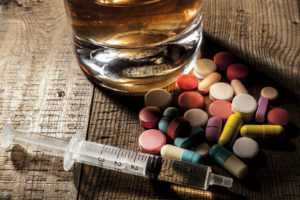In our society, the issue of drug addiction is a pervasive and complex problem that affects individuals from all walks of life. This blog aims to shed light on the nature of drug addiction, its impact on individuals and society, and most importantly, guide those affected towards the path of rehabilitation.
Understanding Drug Addiction
Drug addiction is not just a habit; it’s a chronic disease that alters brain chemistry and leads to compulsive drug-seeking behavior despite harmful consequences. This section delves into the science behind addiction, exploring how certain substances rewire the brain and create a dependency. It also examines the factors that contribute to addiction, including environmental, genetic, and psychological elements.
The brain is a complex organ that regulates our thoughts, emotions, and behaviors. When drugs are introduced into the brain, they can hijack its natural communication system, disrupting the way nerve cells send, receive, and process information. This disruption can lead to profound changes in how the brain functions, making it increasingly difficult for individuals to control their drug use.
Recognizing the Signs of Addiction
Identifying the early signs of addiction is crucial for timely intervention. This segment outlines these signs, differentiating between drug abuse and addiction, and discusses the often-overlooked role of denial in preventing individuals from seeking help.
Some common signs of addiction include:
- Increased Tolerance: Over time, individuals may need more of the drug to achieve the desired effect, indicating a growing tolerance.
- Withdrawal Symptoms: When the drug wears off, individuals may experience physical or psychological symptoms, such as cravings, anxiety, or irritability.
- Loss of Control: People with addiction often find it challenging to control their drug use, even when they want to quit.
- Neglecting Responsibilities: Addiction can lead to neglecting work, school, and family responsibilities in favor of drug use.
- Engaging in Risky Behaviors: Individuals may take risks they wouldn’t normally take, such as driving under the influence or engaging in unsafe sexual practices.
The Journey to Seeking Help
Here, we address the challenges faced in acknowledging the need for help, such as stigma and fear. The importance of supportive networks, including friends and family, is emphasized. Tips for initiating the difficult conversation about seeking help are provided, helping both individuals struggling with addiction and their loved ones.
Facing addiction can be a daunting task, and the fear of judgment and stigma often prevents individuals from seeking the help they desperately need. It’s essential to understand that addiction is a medical condition, not a moral failing, and seeking help is a courageous step towards recovery.
Exploring Rehabilitation Options
Rehabilitation is not a one-size-fits-all process. This part of the blog explores the various rehab options available, from inpatient and outpatient programs to support groups. It highlights the significance of professional guidance from therapists, counselors, and medical experts in choosing the right path to recovery.
Rehabilitation options include:
- Inpatient Rehabilitation: These programs provide a structured environment where individuals live at the treatment facility and receive intensive therapy and support.
- Outpatient Rehabilitation: Outpatient programs allow individuals to attend treatment sessions while living at home, offering more flexibility for those with responsibilities.
- Support Groups: Groups like Narcotics Anonymous (NA) and Alcoholics Anonymous (AA) provide a sense of community and support for individuals in recovery.
- Therapy and Counseling: Individual and group therapy sessions can be highly effective in addressing the psychological aspects of addiction.
The Rehabilitation Process: What to Expect
This section offers a comprehensive guide through the rehabilitation process, acknowledging the challenges and milestones of recovery. The crucial role of mental health treatment alongside addiction therapy is also discussed, providing a holistic approach to rehabilitation.
The road to recovery is not always easy, and it’s essential to be prepared for both the triumphs and setbacks that may occur along the way. During rehabilitation, individuals will learn coping strategies, healthy lifestyle habits, and techniques to manage cravings and triggers.
Mental health treatment is often intertwined with addiction therapy because many individuals with substance use disorders also struggle with underlying mental health issues. Addressing both aspects concurrently is essential for a successful recovery.
Aftercare and Preventing Relapse
Sustaining sobriety post-rehabilitation is a journey in itself. Strategies for maintaining a drug-free lifestyle, the importance of aftercare programs, and effective coping mechanisms to prevent relapse are discussed in this crucial segment.
Aftercare is a vital part of the recovery process. It involves ongoing support and resources to help individuals stay on track. Aftercare options may include continued therapy, participation in support groups, and regular check-ins with a counselor or therapist.
Drug addiction is a complex and challenging issue, but it is not insurmountable. This blog has explored the nature of addiction, the signs to watch out for, the importance of seeking help, and the various rehabilitation options available. It has also emphasized the need for ongoing support and aftercare to prevent relapse.
Recovery from drug addiction is a journey that requires courage, determination, and support from both professionals and loved ones. While the road may be difficult, a healthier, drug-free life is attainable with the right interventions and a commitment to change. Remember, there is hope, and you are not alone in this journey towards breaking free from the chains of addiction.






